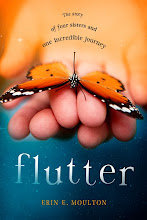
Today I am delighted to welcome Jill Santopolo to The Day Job.
Jill is author of two middle grade mysteries: Alec Flint, Super Sleuth, the Nina, the Pinta and the Vanishing Treasure, and The Ransom Note Blues: An Alec Flint Mystery. She is also the accomplished executive editor at Philomel Books a Penguin Young Readers Group. Jill holds her MFA in writing for children and young adults from Vermont College. She lives in New York where she likes to read, write, run and do an occasional cartwheel. You can find out more about Jill Santopolo and her books at www.jillsantopolo.com
Let's get started!
EEM: Did you always want to be a writer?
JS: I always wrote stories—I actually just came across a box of my earlier works this weekend (kindergarten and first grade mostly)—but I never really thought I’d be someone who would write stories as a job. I just wrote because I liked writing. Luckily for me, I got the chance to make some money doing something I loved to do.
EEM: When you began writing, was it instant success and riches or did you find you had to work other jobs in order to continue your dream of being a writer?
JS: I’m still working other jobs! I edit books and teach fiction writing. Truthfully, I’m not sure I’d ever write full-time. I like switching things up and concentrating on different aspects of the writing and book-publishing industry.
EEM: What jobs have you held, current or in the past, to help sustain your writing career?
JS: Right now I’m an executive editor at Philomel Books, an imprint of Penguin Young Readers Group, and I edit everything from picture books to edgy teen novels. I’m also an adjunct professor at McDaniel College where I teach an online fiction writing class.
EEM: Which job was the most challenging or strange to you?
JS: I think both jobs are challenging in that I have to figure out ways to give feedback—to students and to authors I edit—that help them to realize their true potential. In both cases, I want the people I’m working with to become the best writers they can and make their stories the best that they can, and (hopefully) my comments will help them get there. I take that responsibility very seriously, and because of that, I find it challenging.
EEM: What was your favorite thing about this job?
JS: My favorite thing about being an editor is seeing a book an author worked really hard on succeed and sharing in that happiness.
EEM: Least Favorite?
JS: I hate, hate, hate having to reject manuscripts. A ton of submissions I get just aren’t right for me for one reason or another, and I know I have to pass on them, but I feel bad about doing it because I know that the authors have spent a lot of time creating those pieces.
EEM: Did your day job(s) allow you to write regularly? Or did you have to get creative to get those word counts in?
What other effects did it have on your writing?
JS: Getting the regular writing in is hard. I’ve become a bit of a juggler and have had to accept the fact that some weeks I just might not be able to get the keyboard time in. But because my time is limited, when I do sit down to write, I’m very focused and get a ton done. I also have figured out ways to pre-write in my head so that when I sit down to put fingers to keys I know what I’m going to say.
EEM: Have you ever based a loved protagonist or an evil villain on one of your co-workers? Wished you had?
JS. Ha! I have. But that’s all I’m going to say about that.
EEM: What are you working on now and is the process any easier than your first work?? If so, in what capacity (people noticing it, the writing itself, the confidence?)
JS: I just sent a manuscript off to my agent that’s pretty different than the first two books I have out. And I just started something that’s different than all three of the stories I’ve written before. So in some ways the process is easier because I’m more confident that I can make it work, but it some ways it’s just as difficult because I try to challenge myself to grown and stretch as a writer with each project I tackle.
EEM: Would you change anything if you could begin your writing journey over again?
JS: Hmm, I’m not really sure. I think everything happened the way it happened because of the people I knew and the places I’d been up until that point. I’m not sure if things would’ve worked out any other way…
Hrm....So Jill is just about the only author/writer that I have ever interviewed to admit to adding a co-worker into her work as a protagonist or villain. How about you?




